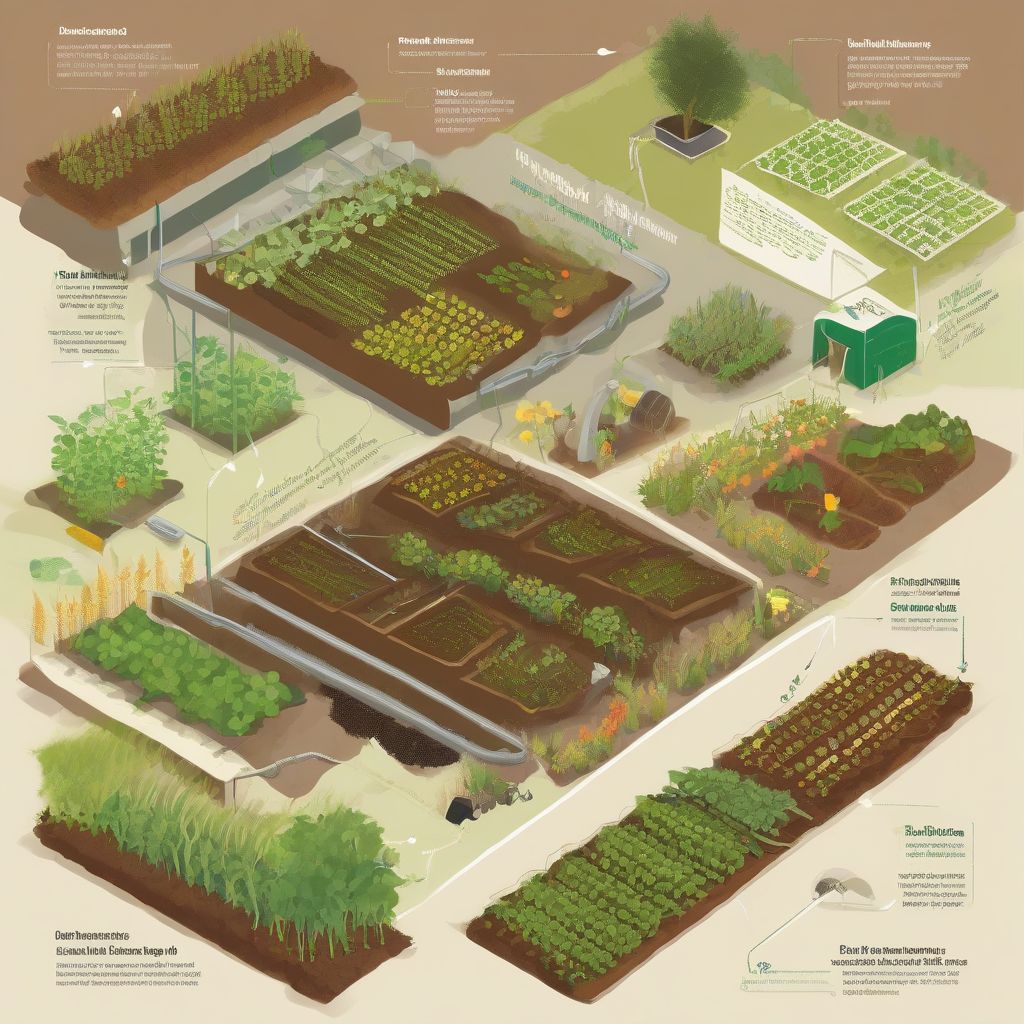Imagine biting into a juicy strawberry, its redness vibrant, its taste bursting with sunshine. Now imagine that same strawberry, grown not just for flavor but with the health of our planet in mind. That’s the future of food – a delicious and sustainable journey we’re all embarking on together.
As a nutritionist and meal-planning coach, I’ve witnessed firsthand the powerful connection between our food, our health, and the well-being of our planet. The way we produce and consume food has a monumental impact on the environment, and the choices we make today will shape the future of food for generations to come.
The Challenges We Face: Feeding a Growing Population on a Stressed Planet
The global food system is at a crossroads. We’re tasked with feeding a projected 9.7 billion people by 2050, all while grappling with the very real consequences of climate change, soil degradation, and dwindling water resources. It’s a challenge that demands innovative solutions and a shift towards sustainable food and farming practices.
Sustainable Farming: A Deeper Dive into the Solution
Sustainable farming isn’t just a buzzword; it’s a multifaceted approach to food production that aims to nourish both people and the planet. It’s about working in harmony with nature, not against it. Here are some key tenets:
1. Regenerative Agriculture: Healing the Land
Imagine farmland as a living organism. Regenerative agriculture focuses on revitalizing this organism by prioritizing soil health, biodiversity, and water conservation. Practices like cover cropping, crop rotation, and no-till farming help sequester carbon in the soil, improve water infiltration, and reduce erosion.
2. Embracing Biodiversity: A Colorful Plate, a Resilient Ecosystem
Monoculture – the practice of growing a single crop on a large scale – might seem efficient, but it leaves ecosystems vulnerable to pests and diseases. Sustainable farming embraces biodiversity, incorporating a variety of crops and livestock to create a more resilient and productive system.
3. Water Wise: Making Every Drop Count
Water is a precious resource, and agriculture is a major consumer. Sustainable farming practices like drip irrigation, rainwater harvesting, and drought-tolerant crops are essential for conserving water and ensuring food security in a changing climate.
 Sustainable Farming Practices
Sustainable Farming Practices
4. Technology at the Forefront: Precision Farming for a Sustainable Future
Technology plays a pivotal role in optimizing resource use and minimizing environmental impact. Precision farming, which utilizes data analysis and sensors, allows farmers to tailor their practices to the specific needs of their land and crops.
5. Reducing Food Waste: From Farm to Table and Beyond
Food waste is a global issue with significant environmental and economic implications. Sustainable food systems prioritize reducing food waste at every stage, from harvesting and processing to consumption and composting.
The Benefits of Sustainable Food and Farming
Transitioning to a more sustainable food system isn’t just good for the planet; it benefits us all:
- Healthier Diets: Sustainable farming often goes hand-in-hand with organic practices and reduced pesticide use, potentially leading to healthier and more nutritious food.
- Environmental Protection: By reducing greenhouse gas emissions, conserving water, and promoting biodiversity, sustainable farming contributes to a healthier planet.
- Economic Growth: Sustainable agriculture can create new jobs, boost rural economies, and foster innovation in the food sector.
What You Can Do: Small Choices, Big Impact
Creating a more sustainable food future is a collective effort. Here are some ways you can be a part of the solution:
- Support Local Farmers and Businesses: Seek out farmers’ markets, community-supported agriculture (CSA) programs, and businesses committed to sustainable practices.
- Reduce Food Waste: Plan meals, store food properly, and compost food scraps to minimize your environmental footprint.
- Make Informed Choices: Learn about food labels and certifications, such as organic, fair trade, and sustainable seafood.
- Choose Plant-Forward Meals: Incorporating more plant-based meals into your diet can significantly reduce your environmental impact.
- Advocate for Change: Support policies that promote sustainable agriculture and hold food companies accountable for their practices.
[amazon bestseller=”sustainable cooking”]
A Delicious and Sustainable Future: It’s Within Reach
The future of food is in our hands. By embracing sustainable farming practices, making conscious food choices, and advocating for change, we can create a more equitable, just, and delicious food system for generations to come. It’s a journey worth taking – one bite at a time.
